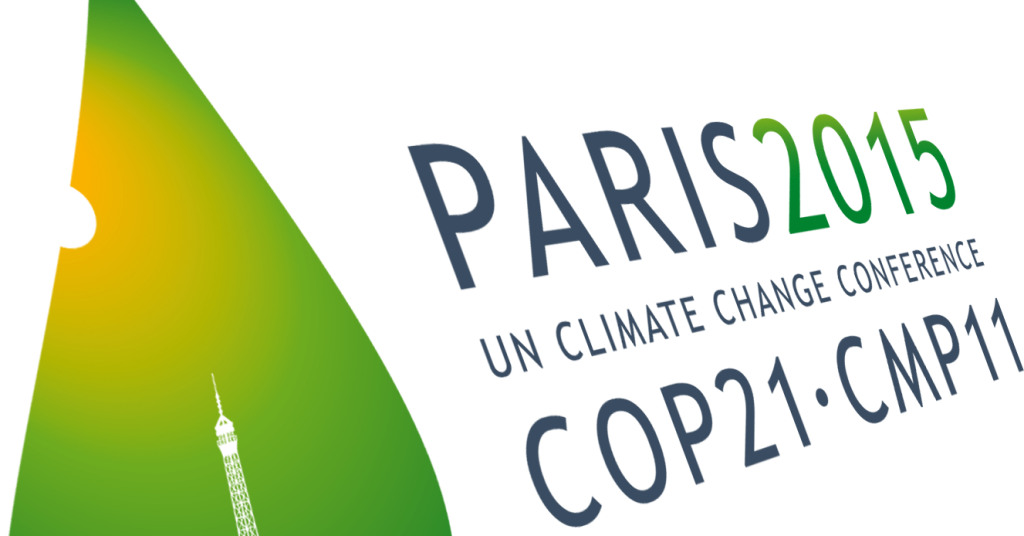On Saturday, December 12th the Conference of the Parties of the UNFCCC concluded in Paris, having successfully reached an agreement. The agreement has been hailed as a highly positive outcome, not only for what its provisions contain, but also for how the international community managed to broker such a deal. Two members of the Effective Nature Laws Team, Mícheál Callaghan and Siobhán Power, were in Paris during COP21. Here they summarise the main outcomes of the agreement as well as the reactions to the deal and its possible impact.
The final text of the agreement provoked a mix of strong reactions. The French government, as well as many other heads of states hailed it as a major victory for the climate and for diplomacy. Others, particularly some environmental NGOs and indigenous rights organisations were less optimistic.
Outcomes
The most significant provisions agreed upon are:
- A reduction in the previous cap of 2 C rise of global temperatures since pre-industrial times to 1.5 C. (Article 2). This entails an estimated emissions reduction of between 40% and 70% by 2050 compared to 2010.
- A ‘Global stocktake’ (Article 14) or revision mechanism by which the progress of the parties will be assessed every five years. This process will begin in 2023.
- Developed countries will be under an obligation to provide financial assistance to developing countries with regard in particular to mitigation and adaptation (Article 9). Developed countries are urged to provide support of USD 100 billion a year by 2020.
- Parties will have to set nationally determined contributions (NDC) to reduce their greenhouse gases and implement domestic mitigation measures to achieve this (Article 4). There is an obligation to communicate this NDC every five years. This provision takes into account the common but differentiated responsibilities and the need to support developing countries, with the long term goal of achieving net zero emissions.
- A mechanism is to be established to aid in mitigation and reduction of greenhouse gas emissions between parties and to continue to support sustainable development. (Article 6).
- A provision has been included obliging the Parties to address loss and damage that has occurred due to climate change and to recognise the importance of sustainable development in this regard (Article 8). Significantly, it has been made clear in point 52 of the Agreement, that Article 8 may not be used as a basis for any liability or compensation as a result of loss and damage caused by the effects of climate change.
Regardless of the diverging opinions, the fact that 195 countries signed up to an agreement to attempt to keep global temperature rises as close to 1.5 C as possible is highly significant, given that this issue has dogged international relations for over 20 years. As well being politically momentous, the deal has sent a strong signal to regional and local governments, industry and civil society. Already, over 1,000 non – state actors have joined the ‘Paris Pledge for Action’ to ensure that the ambition of the Paris agreement is met or exceeded. Implementing both the text and the spirit of the Paris agreement will require a concerted effort of all major actors in the climate governance and policy spheres.
As with many regulatory and governance challenges in the environmental field, encouraging compliance and action on reducing emissions will be key to fulfilling the objectives of the Paris agreement. Ultimately, the effectiveness of the agreement will be judged on whether it can bring down greenhouse gas emissions sufficiently in order to keep temperature rises well below 2 C.
A French Success
The success of Paris could be attributed to the markedly different approach that was taken with the organisation of the talks, instigated by French foreign minister Laurent Fabius, compared to previous conferences. For instance, an astounding 150 world leaders convened at COP21 on its opening day, at the beginning of the negotiations rather than the end; giving negotiators the go ahead to overcome and compromise on long-held positions. The French hosts have been hailed as facilitating transparent, open and inclusive talks. It was a priority to monitor problems and grievances that arose for the delegates in the course of the talks, promoting openness. Small group negotiating techniques of huddles of delegates were used to tackle lesser revisions of the agreement, which were passed to larger groups of about 80 delegates (dubbed ‘indabas’) if it proved too difficult an issue.
Another part of the negotiation that proved key in the positive outcome of the talks was the formation among countries themselves of groups of common interest, that negotiated together with the same goals in mind. This lent itself greatly to the collaborative and diplomatic atmosphere of the talks that proved fruitful at the very last minute; arguably making Paris a more stable and hopeful agreement than its predecessors.


